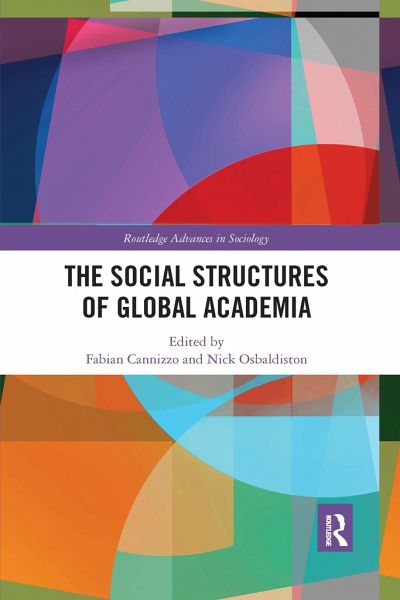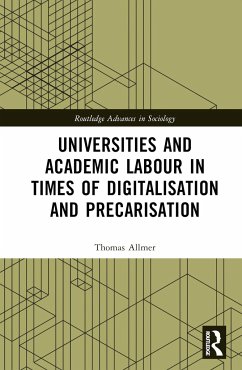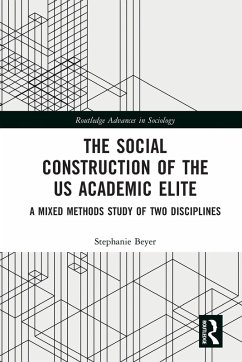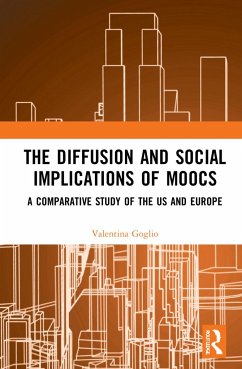
The Social Structures of Global Academia
Versandkostenfrei!
Versandfertig in 6-10 Tagen
47,99 €
inkl. MwSt.

PAYBACK Punkte
24 °P sammeln!
Higher education and research are now at the centre of economic and social policy in advanced information societies. Global networks of researchers, finance, students and policymakers invoke collaborative sociological perspectives. What it means to be an academic and to work in a technologically advanced knowledge industry has undergone transformations that cross national borders. The future of knowledge production, social development, prosperity and the freedom of ideas are caught in the swelling of global tides.The Social Structures of Global Academia exposes readers to a variety of issues t...
Higher education and research are now at the centre of economic and social policy in advanced information societies. Global networks of researchers, finance, students and policymakers invoke collaborative sociological perspectives. What it means to be an academic and to work in a technologically advanced knowledge industry has undergone transformations that cross national borders. The future of knowledge production, social development, prosperity and the freedom of ideas are caught in the swelling of global tides.
The Social Structures of Global Academia exposes readers to a variety of issues that are impacting academics across the globe. The volume includes contributions by leading social scientists and innovative research from emerging scholars. Its anchoring themes include academic ethics, the affective cultures of scholarship, changing funding structures and social control of the currents of scholarly life.
Giving readers an overview of the growing field of critical studies of academia, The Social Structures of Global Academia will appeal to students and scholars seeking to understand more of the burgeoning field of critical sociologies of higher education, and general readers interested in contemporary knowledge about universities, science and the people who make it their passion. It will also appeal to policymakers who are invested in trying to make universities more viable places to work.
The Social Structures of Global Academia exposes readers to a variety of issues that are impacting academics across the globe. The volume includes contributions by leading social scientists and innovative research from emerging scholars. Its anchoring themes include academic ethics, the affective cultures of scholarship, changing funding structures and social control of the currents of scholarly life.
Giving readers an overview of the growing field of critical studies of academia, The Social Structures of Global Academia will appeal to students and scholars seeking to understand more of the burgeoning field of critical sociologies of higher education, and general readers interested in contemporary knowledge about universities, science and the people who make it their passion. It will also appeal to policymakers who are invested in trying to make universities more viable places to work.














